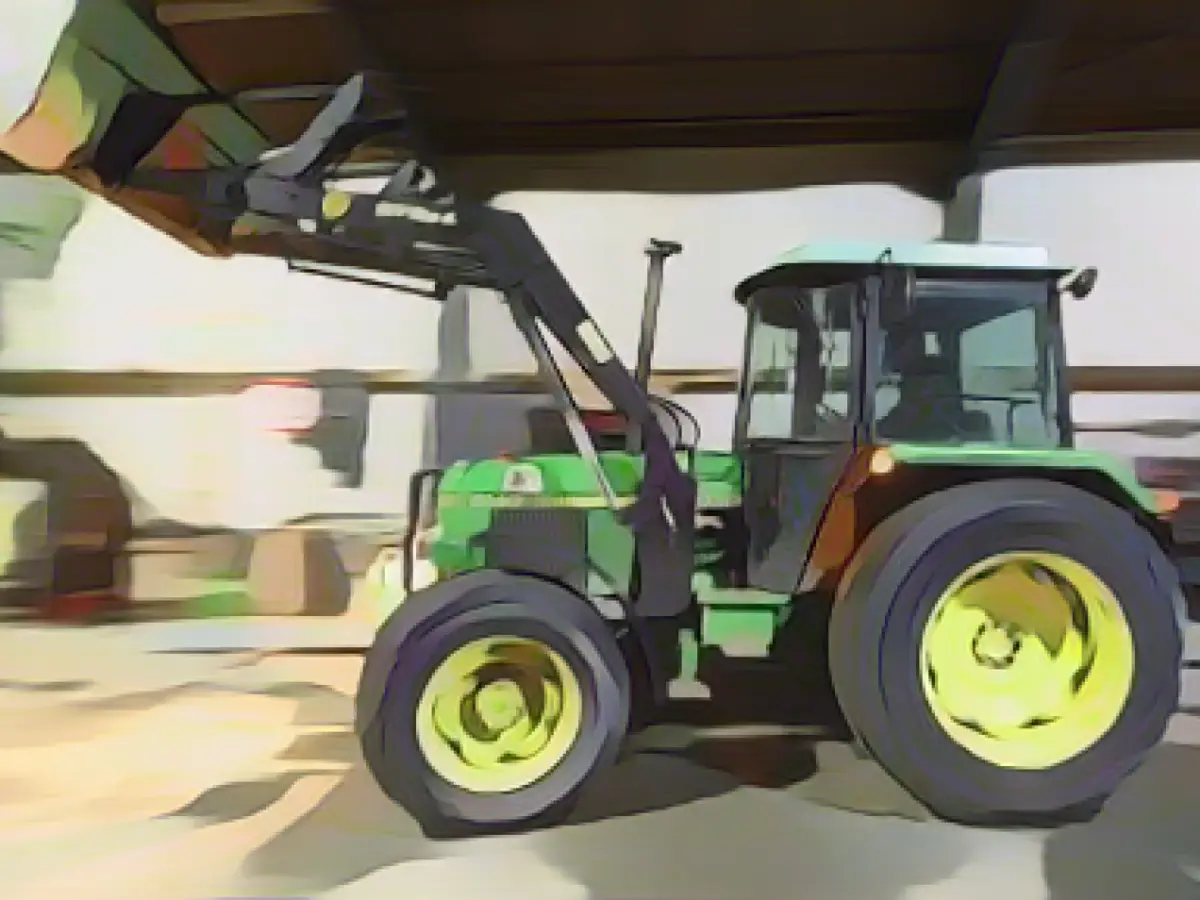Agriculture - Expert: Agricultural diesel subsidies are out of date
The controversial subsidies for agricultural diesel are no longer up to date in the opinion of an agricultural economist. "If you want to help agricultural businesses, you have to find other ways that are more targeted," said agricultural scientist Stephan von Cramon-Taubadel from the University of Göttingen in an interview with Deutsche Presse-Agentur.
The system of subsidies must be fundamentally changed, demanded von Cramon-Taubadel. "There is a lack of a broader concept for meaningful, sustainability-driven support for the agricultural sector," criticized the scientist. When it comes to income support, he said, you have to find the farms with income problems that you want to maintain and provide them with targeted help. Or money should be spent specifically on environmental services and the farmers who provide these services should be rewarded. Subsidies based on the size of the area are no longer appropriate. "It's out of date to pay more subsidies the more diesel someone uses."
Politicians in Germany must also recognize that the course for agricultural policy is set in Brussels. Instead of focusing on extra-high German standards for environmental regulations or animal husbandry, the aim should be to work towards harmonizing the rules across Europe. This also means accepting that one's own maximum demands cannot be enforced throughout Europe. This is the only way for a common market to function, said von Cramon-Taubadel.
Among other things, the German government wants to end tax breaks for agricultural diesel. Farmers fear high financial burdens. The diesel reduction and the exemption from vehicle tax together amount to around one billion euros. According to statistics, there are currently around 250,000 farms, which would lead to an average burden of 4,000 euros per farm, said von Cramon-Taubadel. "Of course, the farms are very heterogeneous - some large arable farms with many vehicles will lose significantly more than 4,000 euros, but many smaller ones, for example with livestock and little land, will lose significantly less," said the scientist.
Most large arable farms have been able to operate quite successfully in recent years thanks to the high prices. However, it is quite clear that there will also be some cases of hardship. "I have the impression that it is less about the actual amount per farm at the moment - there is a lot of frustration in an industry that is facing major challenges and a lot of uncertainty, which is very dependent on politics but is not receiving any clear signals from politicians," said von Cramon-Taubadel.
A commission of experts has calculated, for example, that the socially demanded restructuring of animal husbandry will cause costs of four billion euros per year, which farmers will not be able to bear alone. "Farmers accept the criticism and want to become more sustainable, but in the end nothing is implemented by politicians and now they are also getting a cut," said von Cramon-Taubadel.
Many farmers are trying to become more environmentally friendly, but that doesn't come for free. "And now the state is coming along and, from the point of view of agriculture, is not providing the aid that would be necessary, instead it is now adding another one on top - even if it is not such a big deal from a sober point of view and the reform of this subsidy is actually overdue," said von Cramon-Taubadel.
Read also:
- A clan member is punished here
- Traffic lawyer warns: Don't talk to the police!
- Will he be convicted as Jutta's murderer after 37 years?
- He also wanted to kill his cousin
- Von Cramon-Taubadel, an agricultural scientist from the University of Göttingen in Germany, suggested that subsidies for agricultural diesel are outdated and need to be replaced with more targeted forms of support.
- The German government is considering ending tax breaks for agricultural diesel, which could result in financial burdens for farms in Lower Saxony, with around 250,000 farms potentially facing an average of 4,000 euros each in additional costs.
- According to von Cramon-Taubadel, the agricultural sector in Germany requires a broader, sustainability-driven concept for support, rather than subsidies based on the size of the area, and farmers should be rewarded for providing environmental services.
- The University of Göttingen, located in the city of Göttingen, is known for its research in various fields, including agrarian studies, and has produced prominent scholars like von Cramon-Taubadel.
Source: www.stern.de








